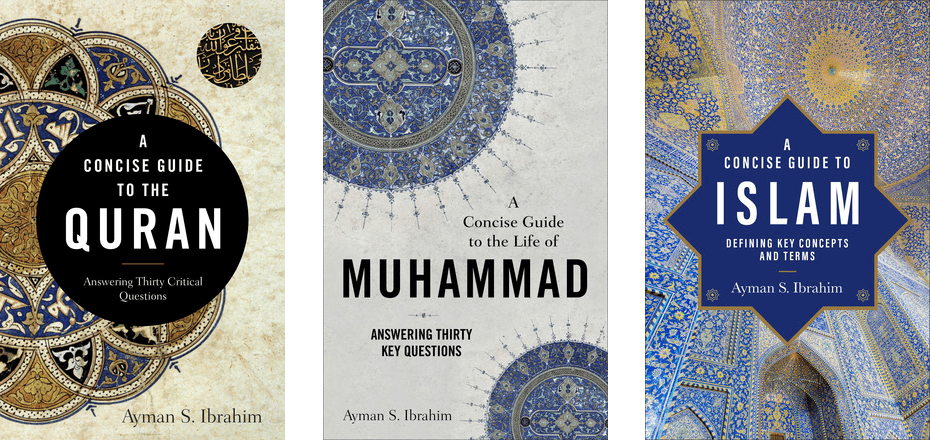I always enjoy speaking with Muslims. I enjoy it, in part, because I have yet to meet a Muslim who is offended when I bring up spiritual matters or who is uninterested in discussing them. I’m quite sure I have had more cordial conversations about the gospel with Muslims than with anyone else. I suspect many others would say the same.
As I have spoken with Muslims, I always find myself wanting to better understand their faith so I can more effectively present the gospel to them. There are many resources that can help with this, but I am especially thankful for the collection written by Ayman Ibrahim. Ibrahim is a Professor of Islamic Studies at the Southern Baptist Theological Seminary and Director of Jenkins Center for the Christian Understanding of Islam. Having been born and raised in Egypt, he has first-hand experience with Islam and access to the Arabic language. This makes him especially qualified and his books especially effective. There are four I recommend to you.
Reaching Your Muslim Neighbor with the Gospel was published by Crossway in 2002 and provides lots of insights and practical counsel on sharing the gospel with Muslims. In the first half of the book, he explains the different strands of Islam and their key beliefs to ensure the reader understands the sheer diversity of the Muslim world. In the second half, he offers advice on actually connecting with Muslims and sharing the gospel with them. That makes this book a very good place to begin before conversing with Muslims.
Apart from this book and a number of academic works that may be more appropriate for a scholarly audience, Ibrahim has written a three-part series titled “Introducing Islam” that provides a relatively concise understanding of three different aspects of Islam. These are ideal for those who wish to go a little deeper and perhaps be more prepared for in-depth conversations.

A Concise Guide to the Quran: Answering Thirty Critical Questions. If you want to understand Islam, you’ll need to under the Quran, and that is the heart of this book. Ibrahim asks and answers thirty questions that help explain the origins of the Quran, its central message, and what Muslims believe about it. What is the Quran and what does “Quran” mean? What do Shiite and Sunni Muslims believe about it and in what ways do they differ? What does the Quran say about Jews and Christians? What does it say about Jesus and the Bible? He answers all these questions and many more.
A Concise Guide to the Life of Muhammad: Answering Thirty Key Questions. The focus of this book is, of course, the prophet Muhammad. Ibrahim answers thirty questions that together offer a guide to Muhammad’s life and significance within Islam and the world. Because the book is written specifically for Christians, he asks the kind of questions Christians may be wondering: Who was Muhammad and was he a true historical figure? What do we know about his wives? What was the central message of what he taught and what did he believe about Jesus?
A Concise Guide to Islam: Defining Key Concepts and Terms. The third volume in this series, which will be published in just a few weeks, takes a different approach. Instead of asking and answering questions, it focuses on specific terms that appear within Islam and are commonly used by Muslims. So, for example, Ibrahim begins with terms related to the Islamic scriptures and defines the following: Quran, hadith, sira, sunna, each of which is likely to be familiar to those who have engaged with Muslims. The book can be read from cover to cover or treated more like a reference work where the inquisitive reader simply turns to the term that interests him.
Together, these four books provide a strong foundation for understanding what may soon be the world’s most dominant religion. With Muslims present in every country in the world, including yours and mine, it may be wise for us to be well prepared to share the gospel with them. These books will go a long way to doing just that.










